Two opposing coalitions in the Middle East define a rivalry that threatens to tear the region apart. As competition for dominance intensifies, the confrontation between Iran’s network of state and non-state actors, and a counter-front of traditional Western allies – centred on Saudi Arabia, the United Arab Emirates, and Israel – has become the region’s central battle line.

The United Arab Emirates and its partners seek to establish an “agenda of regional moderation” targeting two perceived threats: the Muslim Brotherhood and Iran. As the Emiratis see it, the Muslim Brotherhood interpreted its 2012 victory in Egypt’s elections as a mandate to replace the state with an Islamist order that it would then expand across the region. The UAE fears that Tehran interpreted the Joint Comprehensive Plan of Action (JCPOA) on its nuclear programme as a signal that world powers would accept Iranian regional hegemony.
Saudi Arabia, the UAE, Bahrain, Egypt, Kuwait, Jordan, and Morocco have formed an alliance to counter the challenges that Iran and the Muslim Brotherhood pose. As the nucleus of this alliance, the UAE and Saudi Arabia have the opportunity to create a new regional order. They are intent on restoring an Arab-led security architecture, free from interference by outside actors, and on fighting extremism and terrorism.
The alliance sees arguments that Iran or political Islam could have a constructive role in the region – put forward by the previous US administration and several European countries – as naïve. As many events since 2011 indicate, Islamist political movements that gain power through elections often fail to respect democratic norms or to cut their links with terrorist organisations. Arguably, the JCPOA has failed to strengthen moderate voices in Tehran, let alone end Iran’s subversive activities in the region.
Indeed, almost three years after the deal was signed, Iran appears to have intensified efforts to support its proxies in the region, fuelling sectarian tension and undermining the integrity of the nation state. The Yemeni Houthis’ attacks on Saudi Arabia using Iranian-supplied ballistic missiles fit this pattern, undermining Iran’s claims that its missile programme is defensive in nature. For the UAE, the strategic threat from Iran has three main elements: the enlistment and support of sectarian militias; the pursuit of missile capabilities; and the possible restoration of its nuclear programme.
Thus, the UAE strongly supports US President Donald Trump’s proposals to counter Iranian activity across the Middle East. Arguably, this is the first time since the establishment of the Islamic Republic of Iran, in 1979, that the US has declared a clearly defined strategy towards Tehran. The UAE hopes to build a broad international consensus to support this approach, and values Washington’s recognition of the risks associated with the growth of Iranian influence.
As part of this, the UAE believes that there is still a chance for Iraq to resume its historical role in containing Iran. It is eager to help Baghdad overcome sectarian conflict and bolster its Arab political identity. In Yemen, the Arab coalition’s military campaign has started to bear fruit in undermining the Iranian-backed Houthis. However, in Syria, the UAE has little opportunity to push back against Iran, and remains concerned that Islamists would gain power if the Assad regime fell.
This regional approach needs to be paired with a renewed focus on the nuclear deal. The UAE shares European concerns about the deal’s potential collapse, but wants the agreement to include strict limitations on Iran’s regional role and ballistic missile programme. The UAE is also intent on ensuring that members of the Gulf Cooperation Council (GCC) have a seat at the table in any future negotiations. The UAE is prepared to work with its allies in imposing further economic sanctions on Iran, which would increase their leverage in negotiations with Tehran.[1]
However, efforts to establish a regional consensus on Iran face several challenges. Perhaps most importantly, Saudi Arabia and the UAE need to gain greater support from GCC states and other Sunni powers, such as Turkey and Egypt. At the GCC level, Qatar continues to express solidarity with the other members of the organisation in opposing Iranian meddling in the region, but it also supports Islamist groups that the UAE cannot accept. The UAE will continue to oppose Turkey’s and Qatar’s ongoing support for the Muslim Brotherhood and other Islamist groups as strongly as it opposes Iran. It is still unclear whether Ankara will back attempts to rein in Iran. Qatar is likely to maintain a close relationship with the US to benefit from American protection, while simultaneously avoiding direct confrontation with Iran.
The UAE faces a dilemma in that it wants to push back against Tehran’s regional expansion but also recognises that Iran is its second-largest trading partner – and is particularly important to Dubai. For many years, the UAE has sought to expand frameworks of economic cooperation with Iran (as well as Turkey and Qatar) in the hope that the logic of common interests would overcome that of ideology, helping create a regional climate centred on collaboration and mutual benefit. However, the success of this approach has been modest at best.
**
Ebtesam Al-Ketbi is a founder and president of the Emirates Policy Center. She is a professor of political science at United Arab Emirates University and a member of the Consultative Commission of the Gulf Cooperation Council.
[1] See Najmeh Bozorgmehr, “Iran holds 100 traders and freezes accounts in dollar crackdown”, Financial Times, 14 February 2018, available at https://www.ft.com/content/87f5b918-117e-11e8-8cb6-b9ccc4c4dbbb.
